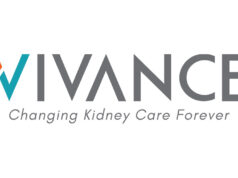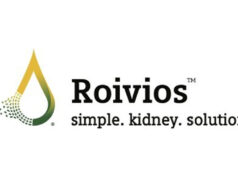
Acute kidney injury (AKI) treated with dialysis is reported to be a frequent complication in patients hospitalised with COVID-19. Research published online in the Clinical Journal of the American Society of Nephrology in late May reveals that machine learning can be used to foretell which of these patients will need dialysis, or experience fatal illness during hospital care.
Investigators from the Icahn School of Medicine at Mount Sinai in New York, USA developed and tested five different algorithms to predict patients requiring dialysis or patient death on day one, three, five, and seven of a hospital stay, using data from the first 12 hours of admission to the Mount Sinai Health System. They included more than 6,000 patients—just under 2,500 in training and more than 3,600 for external validation. Patient data in the retrospective analysis were obtained from adult hospitalised COVID-19 patients from the Mount Sinai Health System who were admitted from 10 March to 26 December 2020.
They report that patients admitted to the Mount Sinai Hospital were used for internal validation, while those from other hospitals were part of the external validation cohort. Features included demographics, comorbidities, and laboratory and vital signs within 12 hours of hospital admission.
 The data show that, out of the five tested machine models, the XGBoost without imputation method outperformed all others with higher precision and recall for prediction of a composite outcome of either death or dialysis in COVID-19 positive patients. Features of creatinine, blood urea nitrogen, and red cell distribution width were major drivers of the model’s prediction capabilities.
The data show that, out of the five tested machine models, the XGBoost without imputation method outperformed all others with higher precision and recall for prediction of a composite outcome of either death or dialysis in COVID-19 positive patients. Features of creatinine, blood urea nitrogen, and red cell distribution width were major drivers of the model’s prediction capabilities.
First author, Akhil Vaid, and colleagues, make the point that dialysis supplies and personnel are often limited. Nephrologist Lili Chan, also from the research team, commented: “We were overwhelmed with the increase in patients who had AKI during the initial surge of the COVID-19 pandemic. Prediction models like this enable us to identify, early on in the hospital course, those at risk of severe AKI [those that required dialysis] and death. This information will facilitate clinical care of patients, and inform discussions with patients and their families.”
Girish Nadkarni, senior author of the paper and an assistant professor in the Division of Nephrology, said: “The near universal use of electronic health records has created a tremendous amount of data, which has enabled us to generate prediction models that can directly aid in the care of patients. A version of this model is currently deployed at Mount Sinai Hospital in patients who are admitted with COVID-19.”
While the machine learning model requires further external review, the research is interesting because such models can potentially be deployed throughout healthcare systems to help determine which COVID-19 patients are most at risk for adverse outcomes of coronavirus, the press release details, also noting that early recognition of at-risk patients can enhance closer patient monitoring and prompt earlier discussions regarding goals of care.












